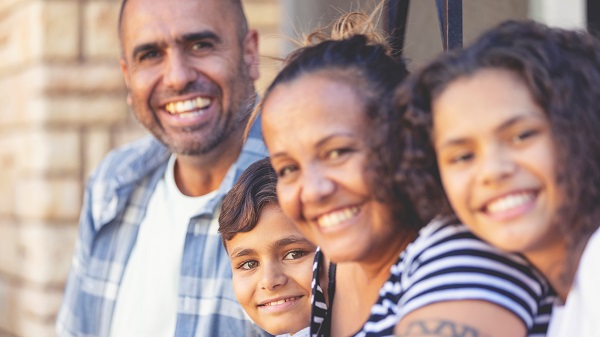Making preventative health care culturally safe for Aboriginal people
Australians have adopted many positive health behaviours amid the COVID-19 pandemic. Increased hand washing and adherence to physical distancing has led to limited community transmission of the virus in most states and territories, and has also resulted in a very mild flu season in 2020. But our embrace of the restrictions that saw Australia successfully flatten the first wave of COVID-19 infections may be detrimental as people delay cancer screenings and other routine health checks for chronic conditions such as diabetes and asthma.
Professor Kim Usher of the University of New England says that maintaining attendance at regular health checks is especially important for the long-term health of Aboriginal people, who experience higher rates of chronic disease than non-Aboriginal people.

Currently, Aboriginal people can access annual Aboriginal health checks, which target the early detection and treatment of chronic conditions such as diabetes and heart disease. Yet in 2017-18, only 29% of Aboriginal and Torres Strait Islander Australians accessed one (about 230,000 people).
“We know that Aboriginal people tend not to access preventative health opportunities at the same rate as non-Aboriginal people,” Usher says.
The reasons behind this are complex. The National Safety and Quality Health Service (NSQHS) Standards note that: “historical events and experiences, coupled with personal and family experiences of institutionalised racism and disrespectful communication, contribute to mistrust in the system by Aboriginal and Torres Strait Islander people and, at times, an unwillingness to engage with healthcare services at all”.
On top of these barriers to accessing health care, Aboriginal people may be less likely to travel and attend preventative health checks at busy clinics during the pandemic than at other times, mirroring the overall trend in the broader population. Higher rates of chronic illnesses among Aboriginal people means that they may have a greater risk of experiencing more serious illness from COVID-19 infection.
Understanding community needs and designing culturally safe services
NSW Health is supporting Usher and her collaborators with a grant to investigate trends in accessing Aboriginal health checks and other preventative screening programs in NSW between 2019 and 2020 (and how this tracks into 2021), the reasons people choose to attend health screenings or not, and how services can be made more accessible.
The project will gather information in two ways. First, researchers will analyse the large data sets on screening attendance rates held by the Australian Institute of Health and Welfare. Then, Usher’s team of collaborators from Walhallow Aboriginal Health Corporation, Armajun Aboriginal Health Service, Marrin Weejali Aboriginal Health Corporation, Billabong Clubhouse, University of Technology Sydney and Hunter New England Health will interview Aboriginal people living in urban, regional and rural communities across NSW to identify what could be done differently to ensure services are provided in a way that’s culturally appropriate and accessible.
Currently, Aboriginal people who live in rural and remote areas are more likely to attend Aboriginal health checks than their city-dwelling counterparts, says Usher.
This is often due to a mix of reasons, for example in regional centres and smaller communities without a dedicated Aboriginal Community Controlled Health Service, Aboriginal families are often able to develop culturally safe relationships with a long-standing local GP. Such long-term relationships may be more difficult to develop in bulk-billing city clinics that operate with a large roster of GPs.
“Aboriginal people have also reported racial discrimination. This is a reason why people are often more comfortable attending Aboriginal Community Controlled Health Services.”
“We want to look at both barriers and enablers so we can understand the whole picture,” says Usher.
“We will then identify strategies that NSW Health can implement to improve preventative health behaviours for Aboriginal people in NSW.”
Ensuring that the research is culturally appropriate and meets the needs of the communities it serves has been central to the design of the project. The research team is guided by an Aboriginal cultural advisory group made up of community members from the areas where the research will take place – Mt Druitt in Sydney; Quirindi and Coledale in regional NSW; and Toomelah in rural NSW.
“Community engagement is key” says Usher. “We work with Aboriginal communities throughout the delivery of the project and in the final analysis and write-up. To us, that’s the way we do our research.”
Updated 3 months ago